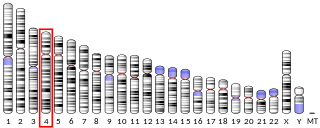Related Research Articles

Cathepsin O is an enzyme that in humans is encoded by the CTSO gene.

Caspase 2 also known as CASP2 is an enzyme that, in humans, is encoded by the CASP2 gene. CASP2 orthologs have been identified in nearly all mammals for which complete genome data are available. Unique orthologs are also present in birds, lizards, lissamphibians, and teleosts.

Caspase-7, apoptosis-related cysteine peptidase, also known as CASP7, is a human protein encoded by the CASP7 gene. CASP7 orthologs have been identified in nearly all mammals for which complete genome data are available. Unique orthologs are also present in birds, lizards, lissamphibians, and teleosts.

Calpain-10 is a protein that in humans is encoded by the CAPN10 gene.

Calpain-2 catalytic subunit is a protein that in humans is encoded by the CAPN2 gene.

Frizzled-7 is a protein that in humans is encoded by the FZD7 gene.

Latrophilin 1 is a protein that in humans is encoded by the ADGRL1 gene. It is a member of the adhesion-GPCR family of receptors. Family members are characterized by an extended extracellular region with a variable number of protein domains coupled to a TM7 domain via a domain known as the GPCR-Autoproteolysis INducing (GAIN) domain.

Calpain-1 catalytic subunit(CANP 1) is a protein that in humans is encoded by the CAPN1 gene.

Calpastatin is a protein that in humans is encoded by the CAST gene.

Calpain small subunit 1(CSS1), is a protein that in humans is encoded by the CAPNS1 gene.

Cathepsin W is a protein that in humans is encoded by the CTSW gene.

Calpain-5 is a protein that in humans is encoded by the CAPN5 gene.

Voltage-dependent calcium channel gamma-3 subunit is a protein that in humans is encoded by the CACNG3 gene.

Voltage-dependent calcium channel gamma-4 subunit is a protein that in humans is encoded by the CACNG4 gene.

Voltage-dependent calcium channel gamma-1 subunit is a protein that in humans is encoded by the CACNG1 gene.

Calpain-9 is a protein that in humans is encoded by the CAPN9 gene.

Calcium channel, voltage-dependent, T type, alpha 1I subunit, also known as CACNA1I or Cav3.3 is a protein which in humans is encoded by the CACNA1I gene.
An Error has occurred retrieving Wikidata item for infobox

Calcium/calmodulin-dependent protein kinase ID is a protein in humans that is encoded by the CAMK1D gene on chromosome 10.

UFM1 specific peptidase 2 is a protein that in humans is encoded by the UFSP2 gene.
References
- ↑ "Entrez Gene: Calpain 6". National Center for Biotechnology Information. U.S. National Library of Medicine. Archived from the original on 18 November 2020. Retrieved 2013-03-05.
- ↑ "Summary for clan CA". MEROPS. Retrieved 20 December 2021.